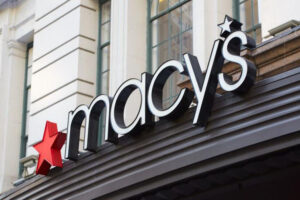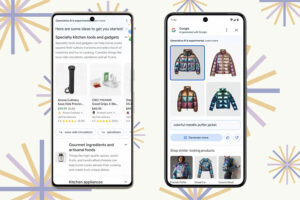Is it even possible to sell “luxury” on Amazon?
While much of Amazon’s sales volume is in diapers, blenders, and other unglamorous products, the e-commerce behemoth is also a fashion giant. Next year it’s expected to become the biggest apparel seller in the US, and it boasts an enviable customer base for higher-end brands: Penetration of its “Prime” membership program is greatest among upper-income households, and they are incredibly loyal repeat customers who like to shop for clothes.
And yet high-end luxury labels aren’t biting. Jean-Jacques Guiony, CFO of LVMH, which owns Louis Vuitton and other luxury labels, told analysts that there is “no way” it would do business with Amazon.
“We believe that the existing business of Amazon doesn’t fit with our—doesn’t fit our luxury, full stop, but also doesn’t fit with our brands,” he said. “If they change the business model, I don’t know, but with the existing business model, there is no way we can do business with them for the time being.”
What is so unappealing about Amazon’s business model? Guiony didn’t elaborate on the call, but for any company premised on keeping its high-end goods restricted to a select few and its brand image tightly controlled, e-commerce presents a conundrum. How do you stick to that premise while also trying to tap the broad, eager audience the internet courts? Can luxury reside just clicks away from fast fashion without losing some of its sheen? It’s a clash between exclusivity and inclusivity.
Several of the more affordable designer brands—”accessible luxury” labels such as Kate Spade—have started selling on Amazon . But for years, higher-end luxury brands have avoided selling online. Those brands also face a logistical problem: The whole point of luxury is the customer experience—from the physical feel of the products to the environment brands create in their stores—and that’s a tactile sensation that’s difficult to replicate online.
Now, some of the staunchest holdouts are being pulled, like it or not, into the digital world. Prada began selling its ready-to-wear online for the first time in July, and Chanel is planning to launch e-commerce by the end of the year.
As they try to maintain their brand images, they face a tricky balancing act. “I’m not for everyone, yet I’m opening my doors to everyone,” is how Marie Audier D’Alessandris, head of global and North American marketing at Coach, framed the situation at an Oct. 6 panel of industry professionals about luxury in the digital age. The panel was hosted by New York’s French-American Chamber of Commerce, whose members include Cartier, Coach, and Tiffany & Co.
Coach has seen the pitfalls of making its products too ubiquitous. Its brand image took a hit when it was too widely available on discount in its own shops and in department stores. To combat the problem, it cut way back on promotions, and worked to elevate itself. It has seen strong results, including rising sales for its more expensive handbags.
Coach does apparently sell some products on Amazon—but only some. While there are many Coach bags available on the site, most are through independent sellers. Currently there are also a few bags available through Amazon.com directly, and they’re not among Coach’s more expensive or unique products. We’ve reached out to Coach to verify whether it is selling these products to Amazon directly and will update this post with any new information.
It’s a strategy other brands are using. Michael Kors, for instance, only sells watches, jewelry, and wearable products through the site. Amazon is directly selling a few Michael Kors bags as well, but a spokesperson for Michael Kors says the brand does not sell bags to Amazon and has not authorized anyone to sell to Amazon.
Kate Spade, which has a large number of bags available on the site, still puts only its mid-range products up for sale. Its most expensive bag on Amazon is currently $452. It has many bags on its own site that cost more, reaching up to about $800.
Clearly brands still worry that Amazon diminishes the air of exclusivity they seek to project. Does true “luxury” have a place on the site? For now the consensus seems to be no. But Amazon may still become an important way to reach customers entering the luxury market, just as fragrances are. The site can offer a less-expensive gateway to a brand—a point of inclusion to entice new customers into the exclusive world the brand is selling.




